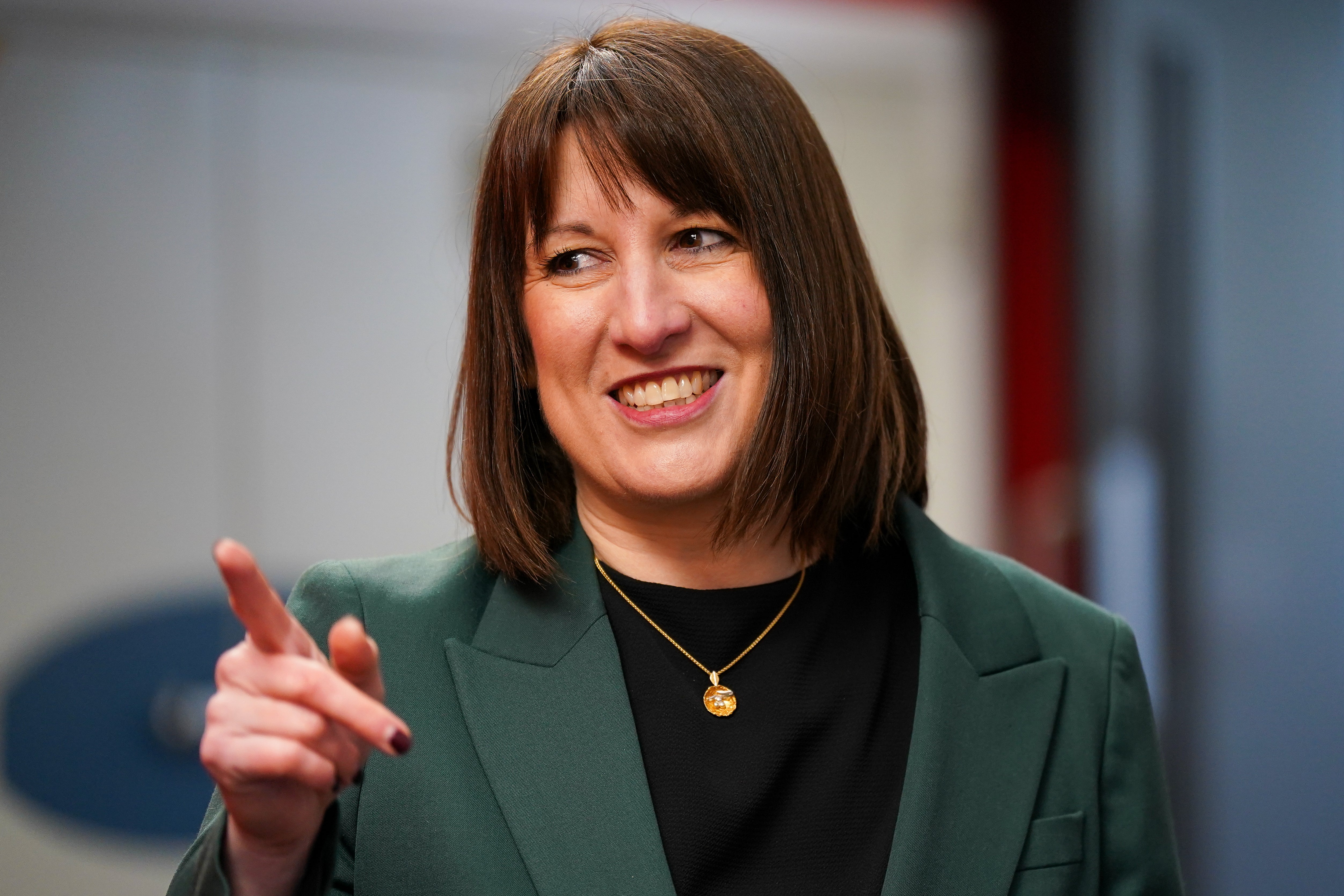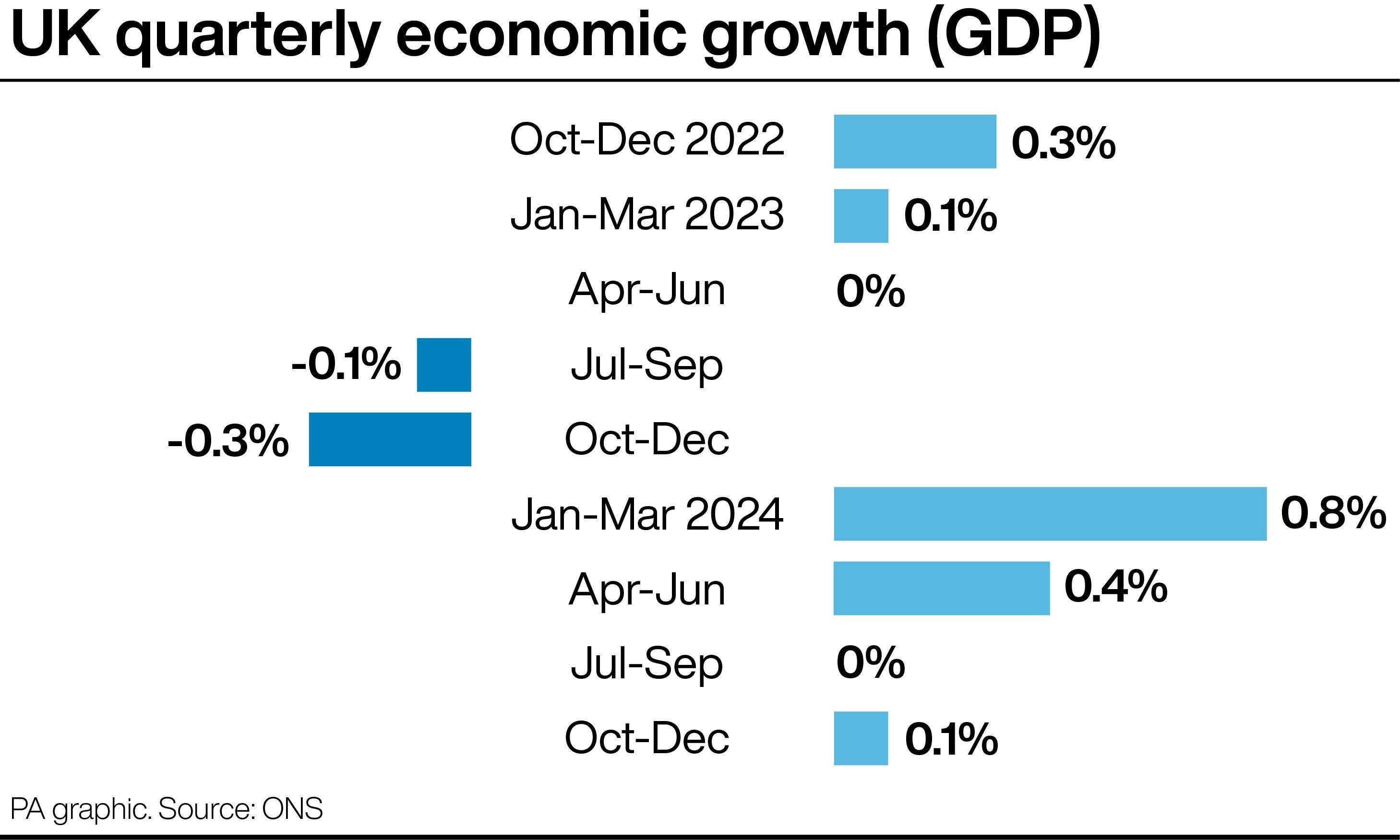The UK economy grew a “flat” 0.1 per cent between October and December last year, according to official figures. Analysts predictions varied, with some expecting a 0.2 per cent rise in GDP, and others saying a slight fall was likely.
The strength of the economy can impact how much tax the government can raise for public services, and how much wages can increase for workers.
Although the rise in GDP is small, it is welcome news for Labour. Chancellor Rachel Reeves has made clear that growth is a central mission for the government, and the 0.1 figure is up from no recorded growth at all in the three months before it.
Responding to the figure, she said: “The growth numbers have come in higher than many expected, but I’m still not satisfied with the level of growth that our economy is achieving.
“And that’s why I am determined to go further and faster in delivering the economic growth and the improvements in living standards that our country deserves.”

Here’s everything you need to know about the GDP and how it could affect you:
What is GDP?
GDP stands for gross domestic product. It is the main way to measure economic activity in a country, taking into account companies, the government, and people.
The headline figure is measured by a combination of three figures: output, expenditure, and income.
Output looks at the total value of all goods and services produced by the economy. This includes manufacturing, agriculture, services and government.
Expenditure is a measure of the value of goods and services bought by households, alongside investments made by the government. It includes the value of exports, minus the value of imports.

Finally, income simply means the value of income that has been generated, largely in profits and wages.
The Office of National Statistics (ONS) publishes new GDP figures every month, but they are most often looked at in quarters (four three-month periods from January to December).
Rising GDP signals economic growth, which is generally welcome news for the country’s companies, households and politicians.
When GDP is falling, it means the economy is shrinking. If it falls for two quarters in a row, the country is considered to be in a recession which can hit wages and jobs.
How does GDP affect me?
Any economic growth is generally good news for UK households as it means people are getting paid more and companies are seeing higher profits, increasing the chance of new jobs being created.
It will also mean that the government has more money to spend on public services, as tax revenue will increase with rising private incomes.
When GDP goes in the opposite direction, the inverse effects can be expected. Less household spending power, job losses and public service cuts can are all consequences of a severely shrinking economy.
In 2020, the UK entered its most severe recession for over 300 years as the Covid pandemic forced the economy to a stand still. The government borrowed billions to prop up the economy, with impacts still being felt today.
This is likely why Ms Reeves has focused so heavily on economic growth in her first six months as chancellor.

Outlining her plans to improve growth at the end of January, she said: “Without economic growth we cannot improve the lives of ordinary working people. Because growth isn’t simply about lines on a graph. It’s about the pounds in people’s pockets.
“And the thriving businesses that create wealth, jobs and new opportunities for us, for our children, and grandchildren. We will have succeeded in our mission when working people are better off.”
However, some analysts have called into question the direct correlation Ms Reeves draws between growth and improved living standards. Experts from anti-poverty charity the Joseph Rowntree Foundation (JRF) has forecast that the average family will be £770 worse off by October 2029 following Labour’s Autumn Budget.
Responding to the new GDP figures, Maudie Johnson-Hunter, economist at the JRF said: “If you can’t afford to pay for food and essential bills you’re unlikely to be able to take part in our economy in meaningful ways.
“While quarterly GDP growth of 0.1 per cent in Q4 2024 is slightly better than expected, this on its own will not raise living standards or tackle hardship. Unless the government tackles underlying economic insecurity, even strong growth alone will not be enough to shift the dial for families struggling to make ends meet.”
Influential think tank the Resolution Foundation likewise points out that GDP per person remains below its pre-pandemic level by 1.1 per cent, saying that the UK is “mired by a living standards downturn.”






